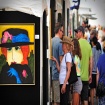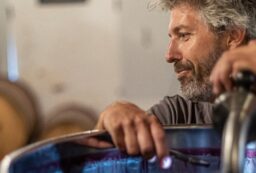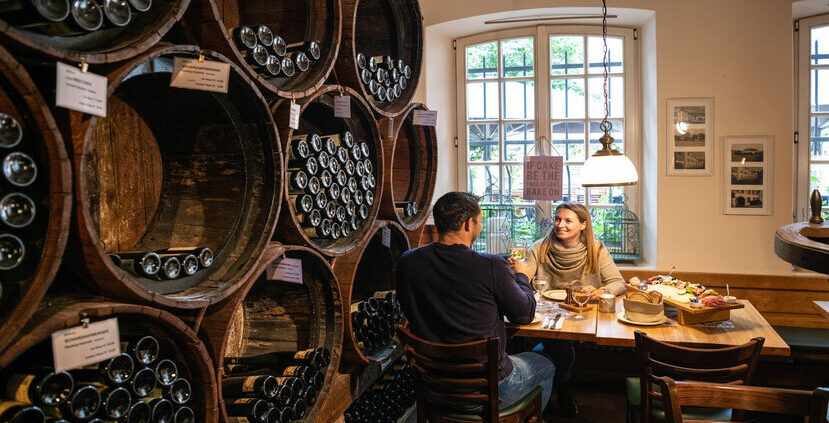
As the ancient Roman proverb states, good wine is a gift from the gods. When you add swirling, sniffing, and sipping good wine among Europe’s centuries-old vineyards, the gift is difficult to compare. Adding to that the delicacies served by master chefs, live chamber music, and a company of elegant gourmands, the experience is nothing short of s heaven for the epicurean. For the epicure, attending Mythos Mosel, a wine-tasting event in Germany’s oldest wine region, would be impossible to resist.
Mythos Mosel, an exclusive three-day vintage tasting, usually takes place during the first or the second weekend of June in the Mosel-Saar-Rower region in southwestern Germany. At least 30 host wineries and approximately 120 winemakers participate. One can taste the products from Mosel’s four different wineries – and a not-so-modest quantity of 24 wines – at each station.
MoselJünger, the local young winemakers’ association, launched this event ten years ago. The goal was to provide support and exposure for the region’s emerging wine-growing talent. Therefore, in addition to the produce from regionally and even globally acclaimed vineyards, young promising winemakers also present their harvest at the Mythos Mosel tastings.
But this affair is not only a celebration of the centuries-old winemaking tradition. Mythos Mosel is a mouth-watering culinary feast as well. The region’s best chefs prepare special menus to accompany the sipping. Moreover, this annual fair offers curious souls a chance to immerse into the intricate winemaking universe. Guests are welcome to explore the wineries’ cellars and stroll up the vineyards to get a closer look at how the wines are harvested, produced, and stored.
"With approximately 3,500 hectares of vineyards on high slopes, Mosel is the largest steep-slope wine area in the world."
The Mosel-Saar-Rower region – or unofficially, Mosel – is located an hour-and-a-half drive from Frankfurt. It draws its name from the Mosel River, which curves its way through Germany’s Rhineland-Palatinate’s Eifel and Hunsrück areas and stretches towards the French border. Hardly any other wine-growing region in the world offers such a stunning natural contrast. Steep terraced slopes merge into expansive river valleys with medieval villages perched on the hills like colorful hats. With approximately 3,500 hectares of vineyards on high slopes, Mosel is the largest steep-slope wine area in the world where many vines require harvesting by hand. The region also has the highest density of award-winning and gourmet restaurants in Germany, including one with three Michelin stars.
Historical and cultural landmarks are abundant in Mosel, too, and the area is home to a few UNESCO World Heritage Sites. One of those is Trier, Germany’s oldest town which transports visitors to nearly two millennia back. Trier’s monuments include the 2nd-century fortified Roman gate and ancient baths, the 4th-century Cathedral of Saint Peter, and one the earliest gothic churches in Germany.
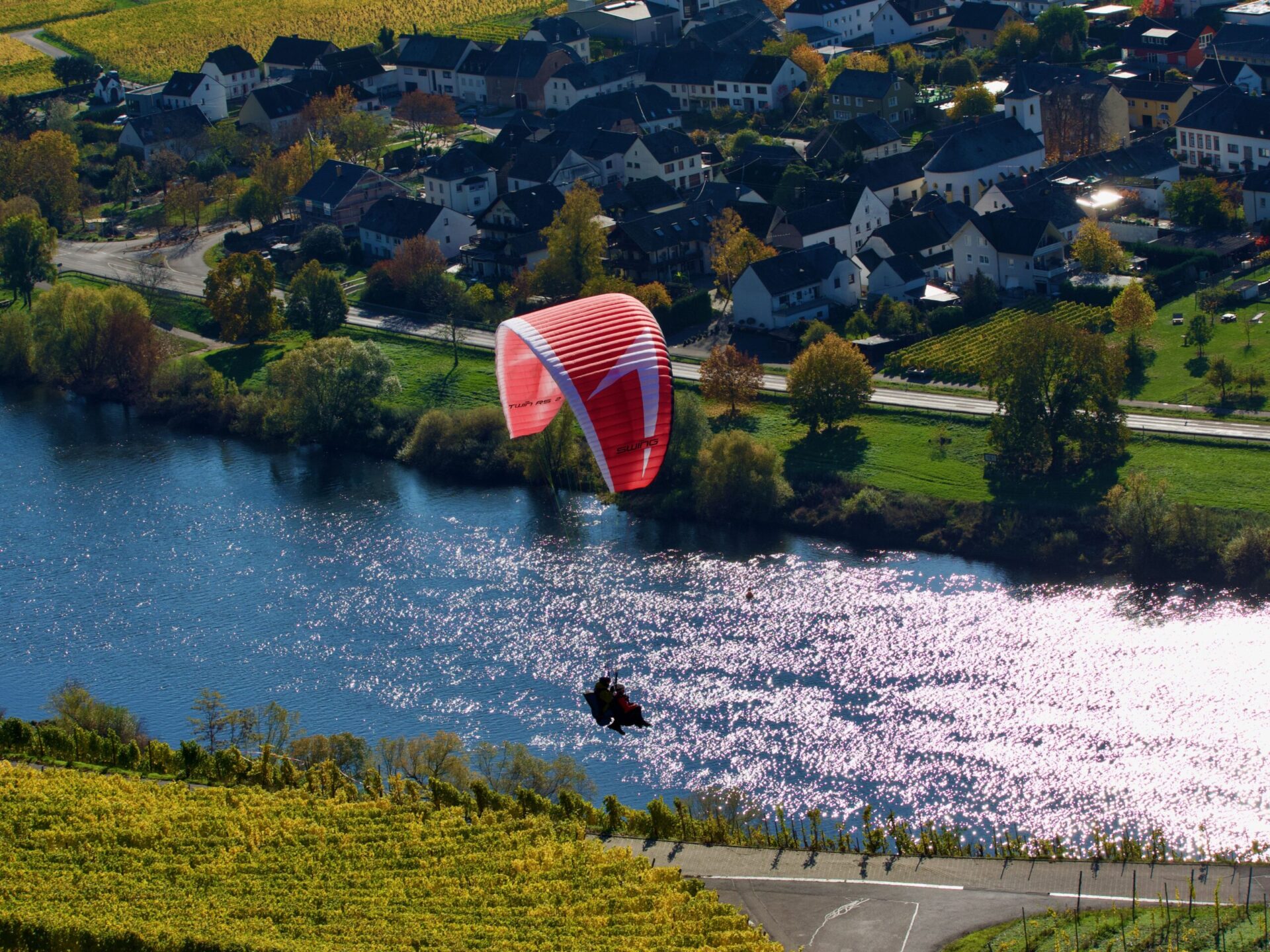
More than 60 million vines, mostly white grape varieties, grow on the river Mosel’s banks. Riesling, the “queen of white wines,” produced in Germany since the year 1435, dominates – and it is still harvested mostly by hand. Müller-Thurgau, Pinot Blanc, and Pinot Noir as well as the Mosel specialty called Elbling are among the other prominent regional grape varieties. Thanks to the mineral-rich slate soil, local wines tend to be a bit spicy and mineral in taste, with a light body, pale color, and refreshing fruity acidity.
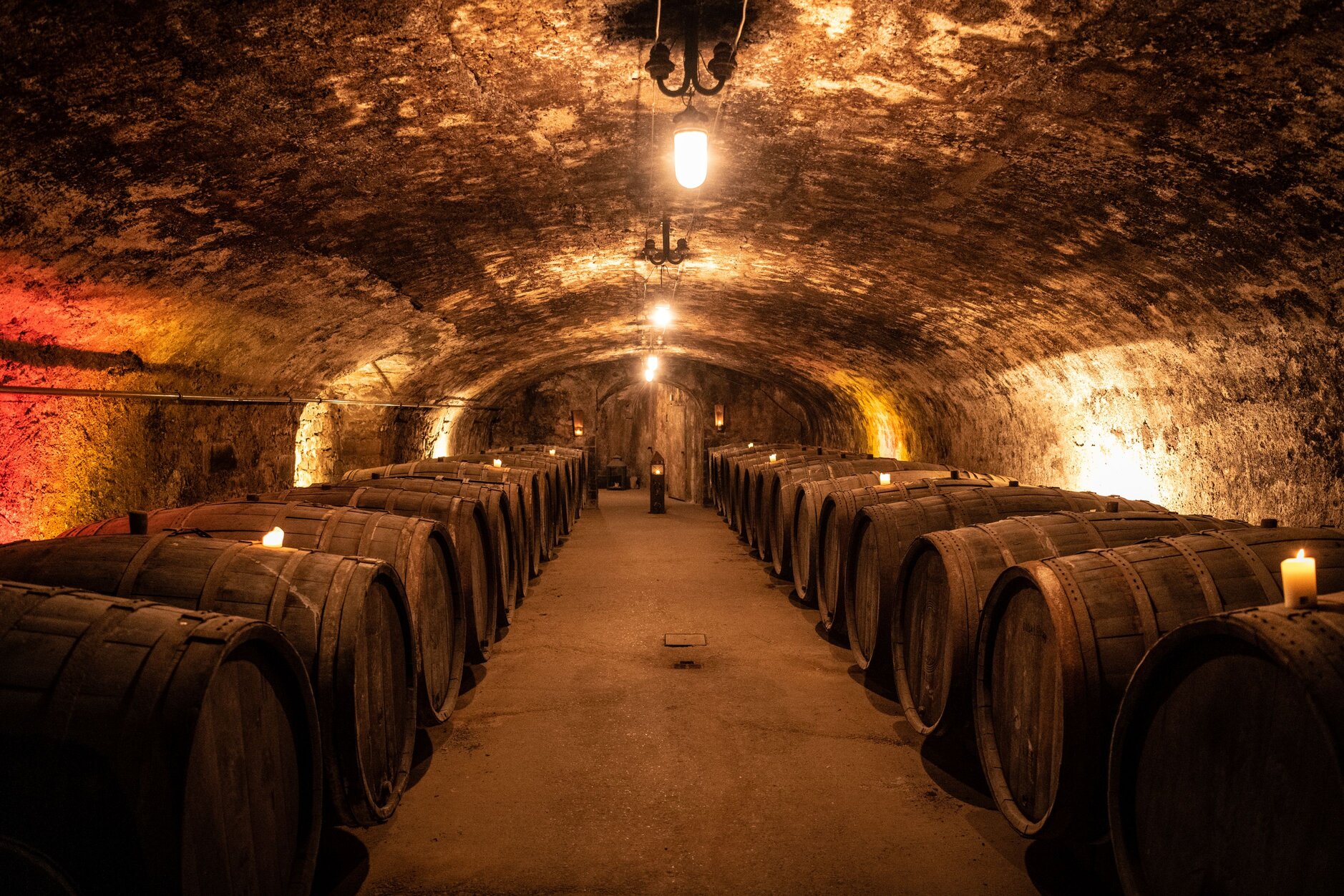
All of these great wines are available for tasting at the Mythos Mosel. The event usually kicks off on a Friday evening at one of the area’s best boutique hotels. Glasses clink, candles flicker to the evening river breeze, as the winemakers serve their finest from magnum bottles and chefs prepare their signature dishes.
This region’s cooking is a curious blend of various gastronomic influences. These include ancient Roman heritage and the haute cuisine trends from nearby France. Riesling and other Mosel wines also make their way into the dishes the guests get to try during the event. Riesling herb soup, which is typical for the area, is a traditional and deliciously light starter. Another local specialty often served during Mythos Mosel is Tresterfleish. This is pork meat marinated in grape pomace. A tender, aromatic roast as the meat is soaked for days in a fine wine and pomace broth and then slow-cooked for hours.
"More than 60 million vines, mostly white grape varieties, grow on the river Mosel’s banks. Riesling, the “queen of white wines,” produced in Germany since the year 1435, dominates - and it is still harvested mostly by hand."
Many of the postcard-worthy villages perched on the Mosel banks’ vine-covered hills are perfect day-trip excursion spots. Cochem is one of the prettiest, with a pedestrian cobblestoned Old Town with wrought-iron signs and a fairytale Reichsburg Castle steeped in more than a thousand years of history. Another spectacular sight is the neighbouring 850-year-old Burg Eltz standing on a rock amidst a thick forest.
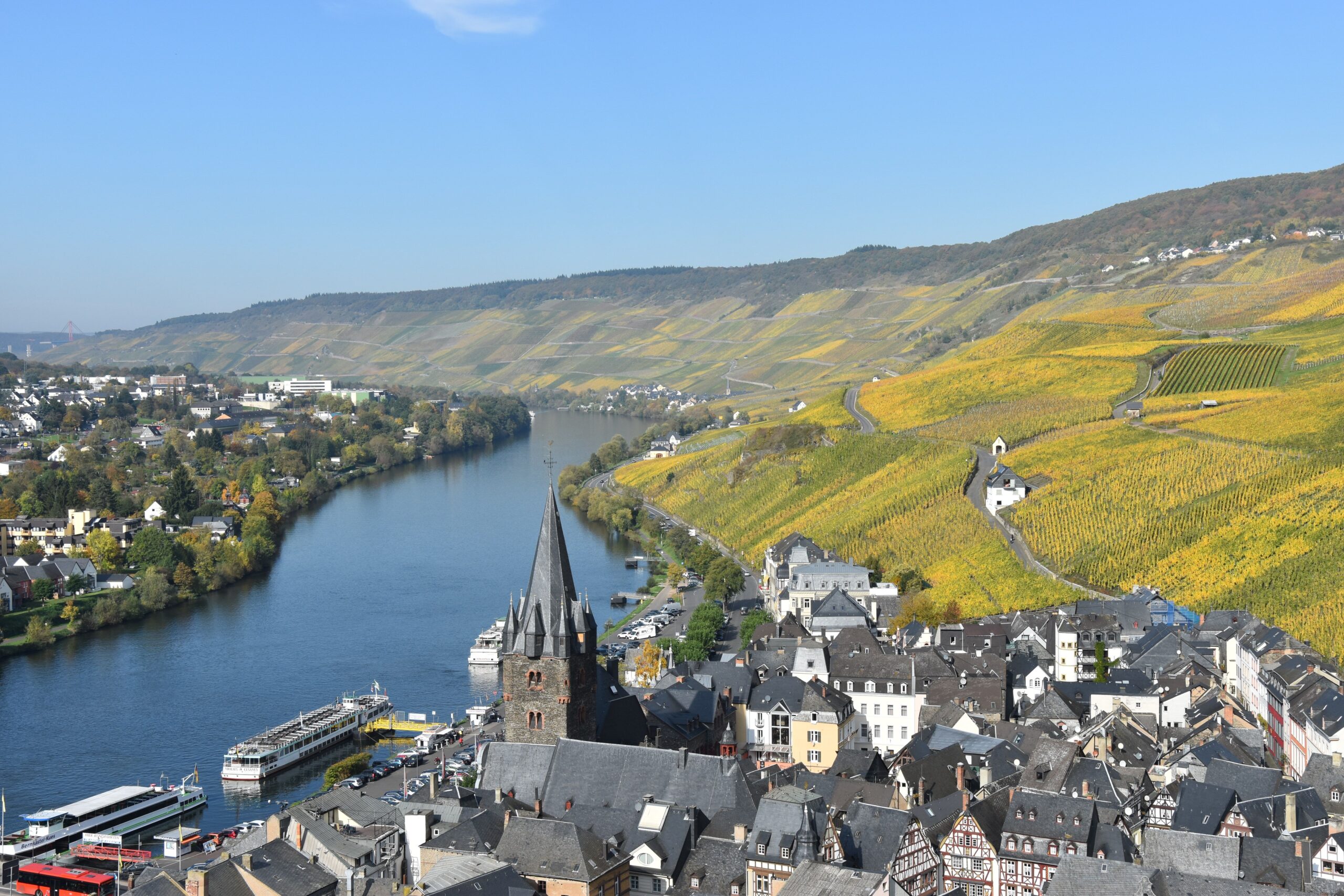
Ernst, a picturesque riverside old town with Roman roots, is one of the pleasurable wine-tasting stops. At Winneburger Hof, a local guesthouse with a recently refurbished 16th-century wine lounge, a wine refrigerator is always stocked with top picks from the area. Another renowned winery, Weingut Schloss Saarstein, rests on the Saar River, a right-bank tributary of the Mosel River. This genuine German chateau with the century-old manor house stands right in the middle of the vineyard. The owner Christian Ebert’s credo is “Every vine should be able to see the river.” The guests taste the hand-harvested local vintages at the winery’s glassed-in panoramic terrace perched high above the river, and Herr Ebert is always happy to point out the exact site where the wine in their glasses was grown.
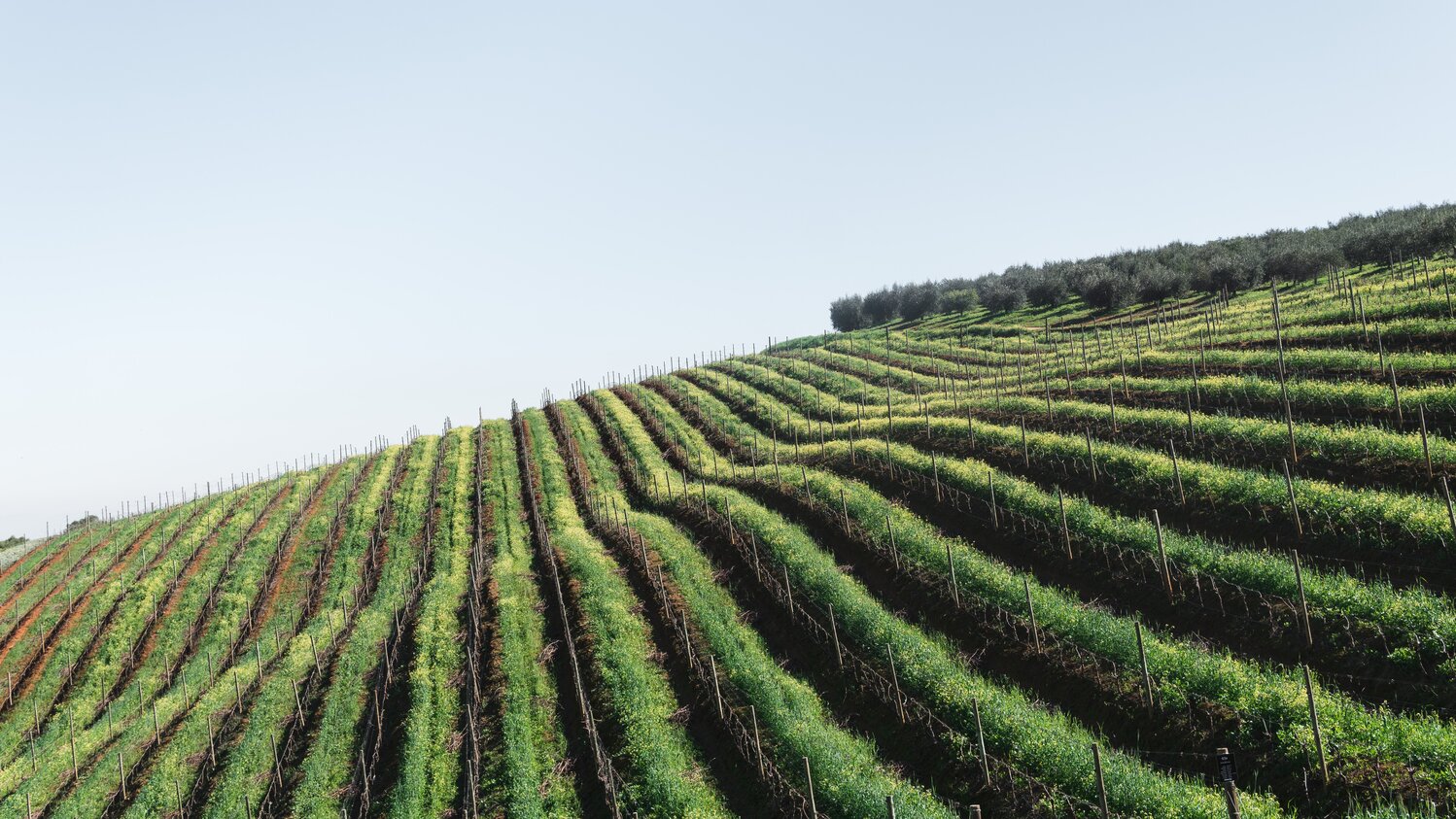
For refuelling between the sips and perhaps for staying overnight, a boutique Weinhotel St. Stephanus is an enticing option. It is located in the riverside town of Zeltingen, one of the Mythos Mosel wine-tasting stations just steps away from the historic marketplace. Saxler, the hotel’s cozy family-owned restaurant with an international menu is mentioned in the Michelin Guide. And if at some point one gets jaded of wine, the locally-brewed monastery beer from the property’s own vaulted brewery cellar may become a welcome alternative.
Another deluxe spot to recharge and enjoy some of Mosel’s best food and wine is the newly-opened Deinhard’s Hotel in the heart of Bernkastel-Kues town which recently hosted the Mythos Mosel opening party. The 17th-century building with expansive river views features a SPA with several saunas and various massage options, a tasteful modern art collection, and a gourmet restaurant.
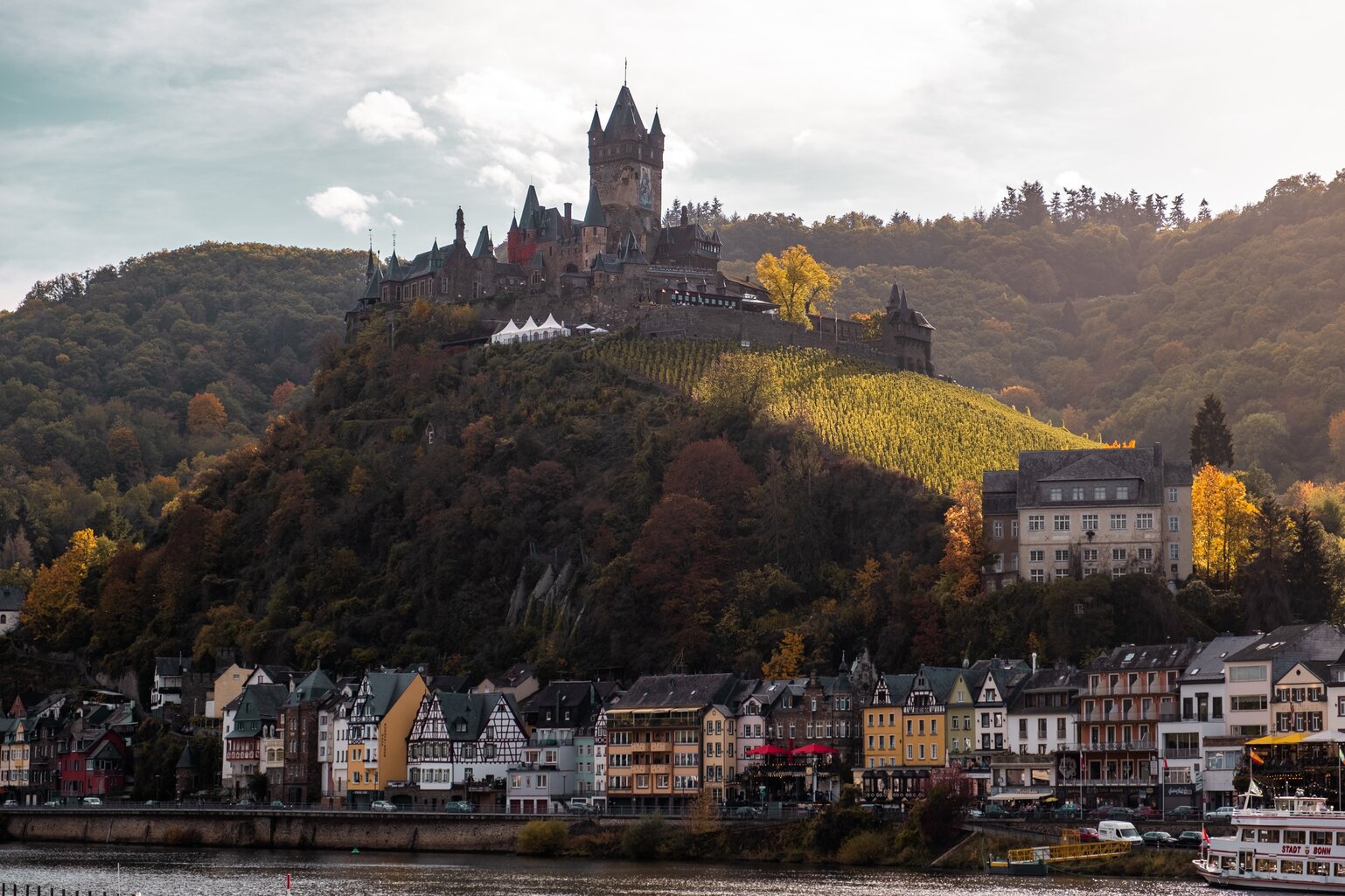
During Mythos Mosel, there’s so much more to experience beyond a glass of wine. It is a chance to decompress and dine in style, mingle with fellow wine enthusiasts, and get to know some of the top wine producers in Europe. It’s also an opportunity to enjoy sightseeing in an area so picturesque that one finds it difficult to put the camera down. And a bottle or two of the refreshing Riesling to take home will help cherish the festive spirit of this glamorous summer event.

